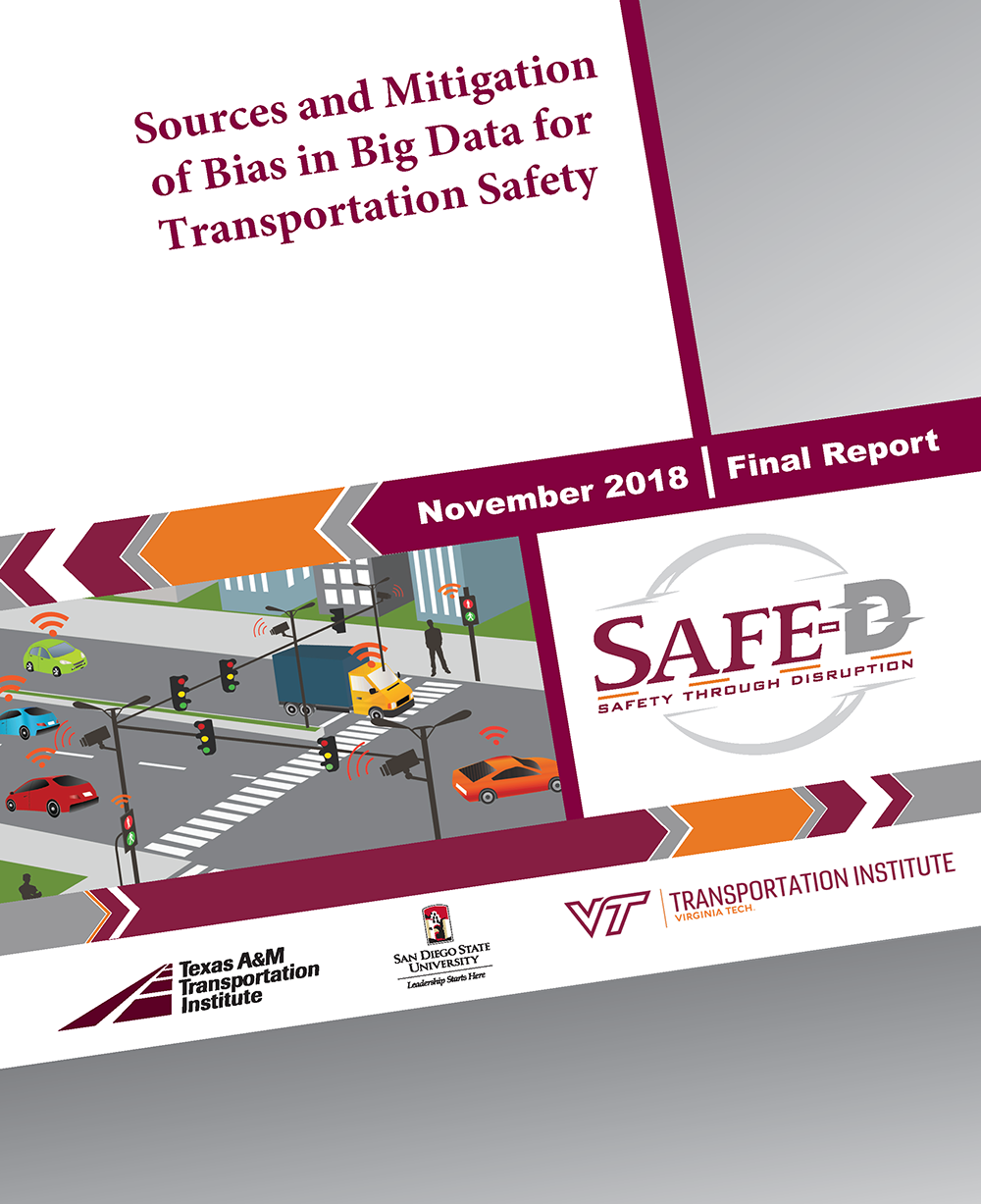
Abstract
Emerging big data resources and practices provide opportunities to improve transportation safety planning and outcomes. However, researchers and practitioners recognize that big data includes biases in who the data represents and accuracy related to transportation safety statistics. This study systematically reviews both the sources of bias and approaches to mitigate bias through review of published studies and interviews with experts. The study includes quantified analysis of topic frequency and evaluation of the reliability of concepts by using two independent trained coders. Results show a need to keep transportation experts and the public central in determining the right goals and metrics to evaluate transportation safety, in the development of new methods to relate big data to the total population’s transportation safety needs, in the use of big data to solve difficult problems, and to work ahead of emerging trends and technologies.
